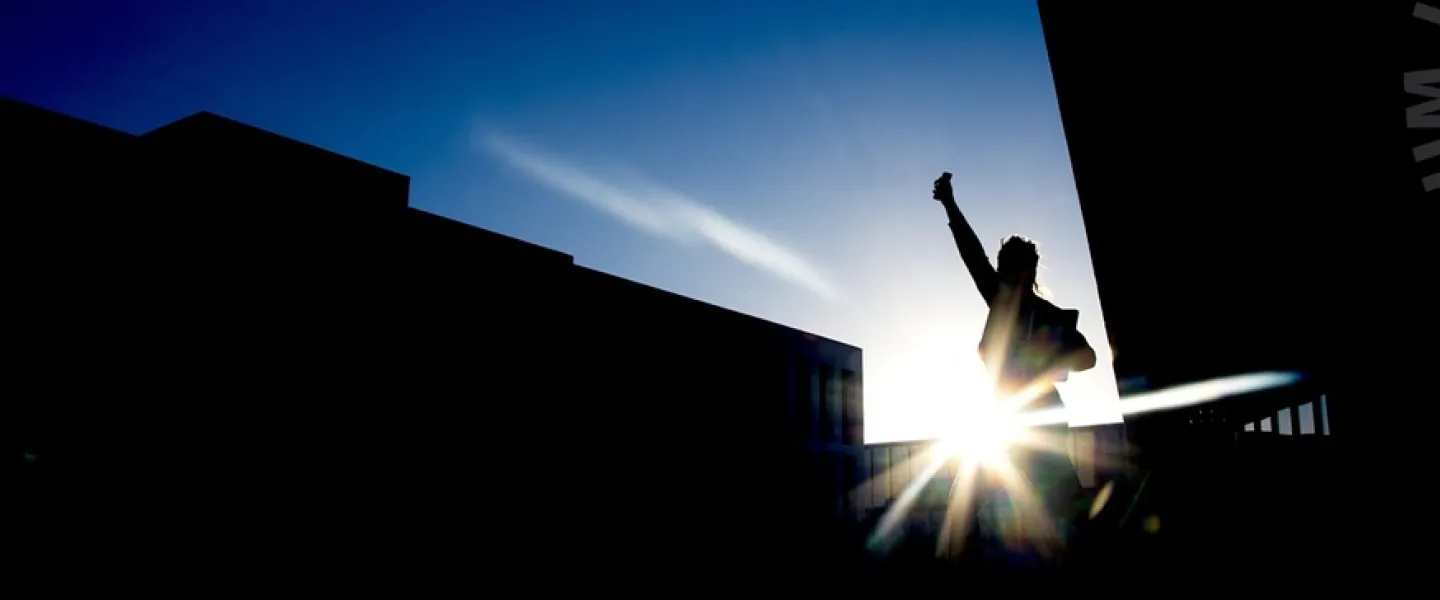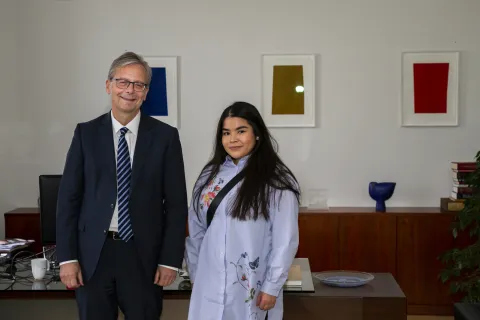
Isabel Alejandra Díaz will never forget the spring of 2020. Like other students at the University of Iceland she had to work on her studies in the difficult conditions caused by the Covid Pandemic, including finishing her BA thesis in political science and Spanish. In addition to this, she has been at the forefront of protecting the interests of students in the current social crisis, as she was recently elected the president of the University’s Student Council. Furthermore, she will serve as student representative on the University Council for the next two years. Isabel looks forward to taking on the challenges she faces during her term, which happens to be the Student Council’s centennial. She is adamant that the authorities need to secure proper funding for the university to ensure that Icelandic students are on the same level as their peers in Nordic universities.
Isabel matriculated from Ísafjörður College in 2016 and enrolled at the University of Iceland a year later. She says she had no ambitions to get involved in student politics even though she was familiar with them. “The student organisation Röskva contacted me and invited me to a presentation, I attended and this got the ball rolling. I applied for the position of new student representative on the board of Röskva in October 2020, and I have been involved with them ever since,” says Isabel, who has served as the vice-president of Röskva and a reserve member of the Student Council before she was elected president of the council this spring. She is the first student of international origin to take that position.
Ready for the challenges of changed social conditions
When asked why she decided to stand as a candidate for the presidency of the Student Council she says that she is very enthusiastic to take on the current challenges. “Student politics have been very lively for the last 2-3 years, with successes reaching outside the university walls. We have managed to get the attention of many, we have been quoted in Althing and the university community has undergone various changes. My time as a student has involved a lot of student politics, and I knew that I wanted to work for the student body even though I was finishing my undergraduate studies. In February/ March it became clear that the near future held a lot of uncertainty due to the situation in our society and I knew I was ready for those challenges. I saw no hindrances and I believed this was the optimum way to use my strengths so I stood for the election,” she says.
Alongside her position as President Isabel will also serve as one of two student representatives on the University Council, thus having access to influence the operations and policy of the university. “Decisions taken there concern us and often directly impact students. It is important that we have a voice, and in recent years this has been of great importance. Of course sometimes there are difficult issues, but mutual understanding is key to reaching solid conclusions,” she says.
Isabel says that students face many burning issues, concerning COVID-19 and the social impact of the pandemic, and various long term practical issues. She says that she will have four or five main issues that she will focus on as President. “The registration fee at the university needs to be lowered so the university is on equal footing with Nordic universities; Icelandic students pay up to five times more to study at a public university than students in the other Nordic countries, in some cases we pay more than the tuition at private universities in neighbouring countries,” she says.
“Students must be made eligible for unemployment benefits. The Student Council has established that a part of students’ salaries go to the Unemployment Benefits Fund, as with all working people, yet students are not eligible for benefits,” says Isabel and adds: “This means that there is no safety network in place in case of a setback or a future pandemic – this needs to change, we need a long term solution,” says Isabel. She points out that working students were eligible for benefits in study breaks until 1 January 2010, and claims that the change made then should have involved students not paying into a fund where they cannot get any benefits.
